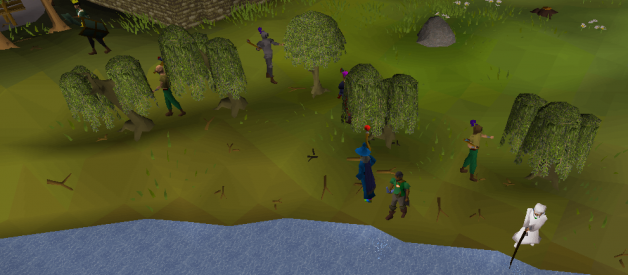Many of Oldschool Runescape?s towns and cities, from Port Phasmatys to Lleyta, are dead. This wouldn?t necessarily be a problem in many other MMORPGs, where towns and cities merely act as hubs for adventures in the countryside. But in OSRS, towns and cities really matter to core gameplay. With its unusually sociable player base and sophisticated market economy, OSRS needs bustling towns and cities just as it needs deserts, dungeons, and dragons. Losing these places means losing the heart of what brought so many of us into Runescape in the first place. For this reason, I would like to take a deep dive into the various ways that Jagex could transform OSRS?s dead cities back into lively hubs of player activity.
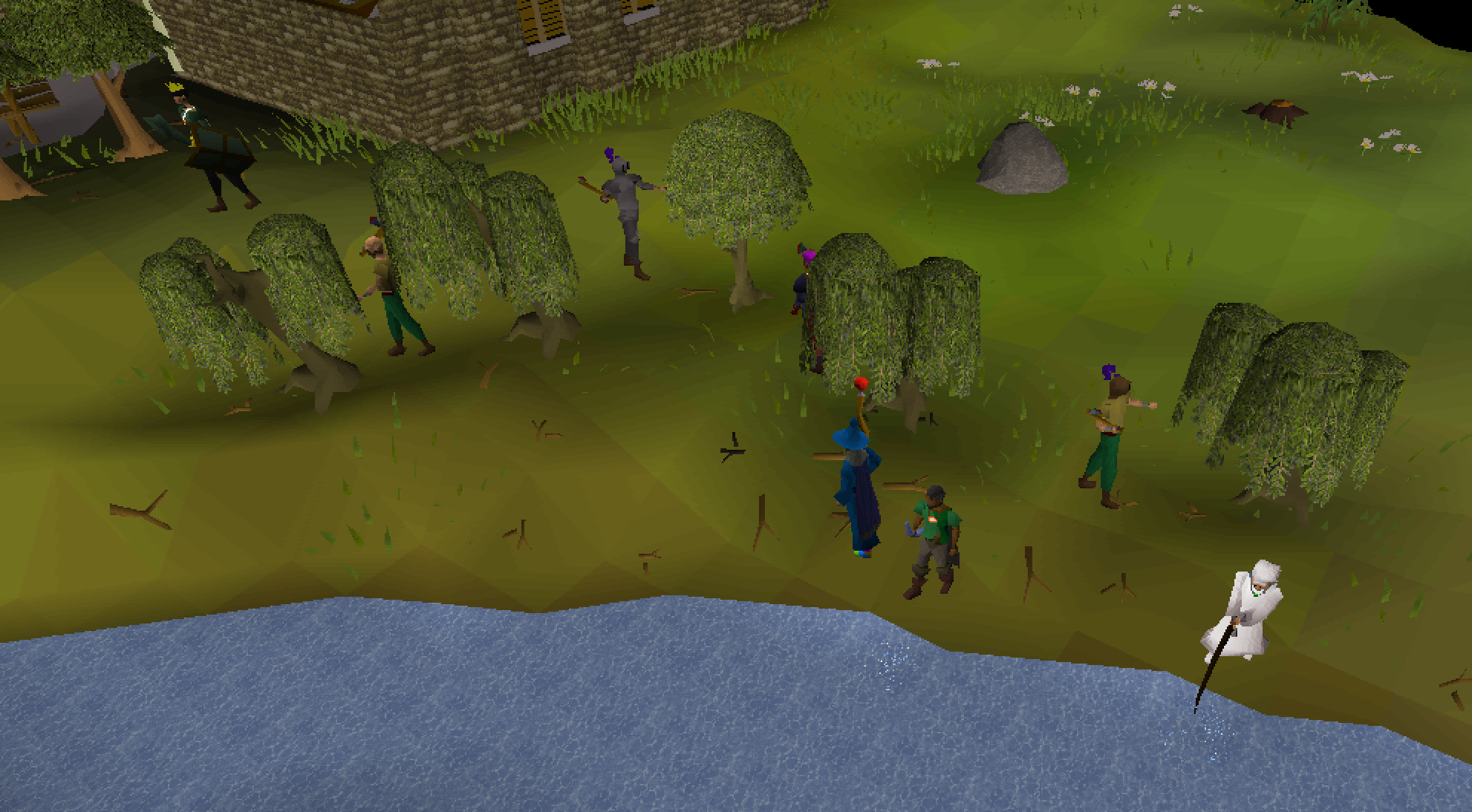 Not pictured: Dark wizard (level-7)
Not pictured: Dark wizard (level-7)
Let?s start with the vanilla stuff. Most players spend the bulk of their in-game time skilling, often repeating the same task at the same location for hours on end. While many players are AFK (?not a bot bro?), at least as many players enjoy skilling in areas with lots of activity and conversation to ease the monotony. Maybe chatting is an ?xp sink,? but this is a game we?re talking about.
Every large city needs at least three skilling hubs to feel alive. Rooftop agility courses help in this regard, but most towns and cities need more viable skilling opportunities. Consider Varrock, the model OSRS city: its western end is activated by smithers, its northern end is activated by woodcutters, and its eastern end is activated by rune ess miners and plank crafters. Compare that to Ardougne, a mostly dead city: even with an active rooftopagility course, Ardougne?s skilling activity is really only limited to two skills ? agility and thieving ? in a single section of the city. In Falador, the only real skilling available is mining, and even then, it?s only viable on F2P servers. Ardougne and Falador need more skilling opportunities, and they need them to be spread out.
Towns, on the other hand, can get by with one or two viable skilling sites. Draynor Village, Seers Village, and Al Kharid are among the most active places in the game, largely because they dominate segments of woodcutting, fletching, and crafting, respectively. Compare them to unsuccessful towns like Taverley, Brimhaven, and Witchaven. None of these cities have a single viable skilling opportunity.
Thankfully, this is perhaps the lowest of the low-hanging fruit when it comes to reviving OSRS?s towns and cities. Simply adding a few skilling sites ? trees, ores, farming patches, fishing sites, etc ? for the stretches of skills lacking viable sites would add a guaranteed player base. Sites serving skill levels above 92 (recall, 100/2 = 92) especially so, given that these players have so much work to do, creating a lot of player activity. With a little forethought, this could be accomplished without lowering the difficulty, since in some cases this might just involve moving existing sites from overactive towns and cities to dead or dying towns and cities. For example, why not add a new viable rune ess portal, move the lumber yard, or put farming patches in or near currently dead cities? A vocal minority of players will balk at first, but in the long run, this would revive a lot of dead content.
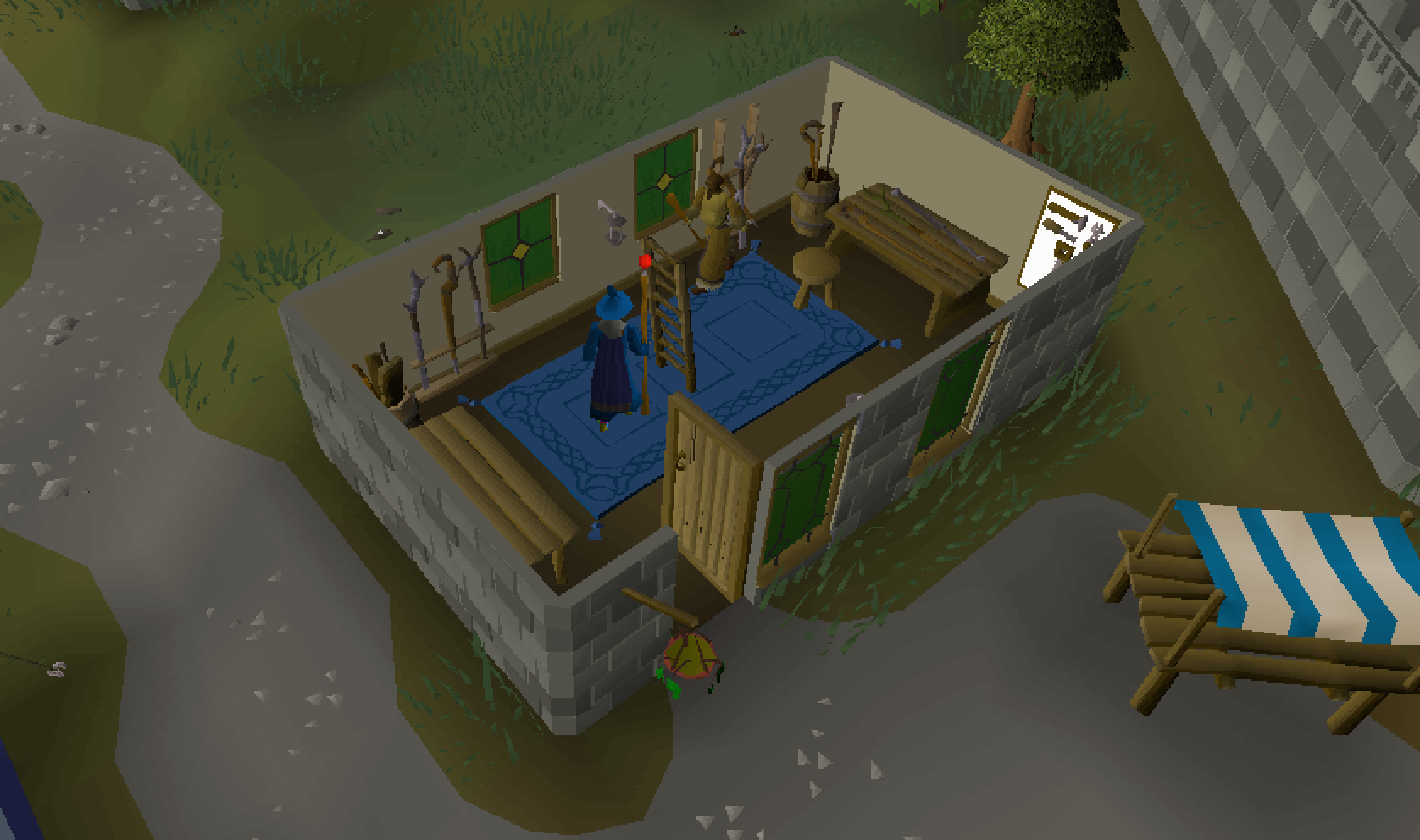 Zaff?s Staffs: the rare specialty store that anyone visits.
Zaff?s Staffs: the rare specialty store that anyone visits.
Make specialty shops useful.
Specialty shops are mostly useless, which is too bad because they could, in theory, provide players with a reason to visit otherwise dead towns and cities. They can be revived in at least two ways: First, by making the prices competitive. At present, their prices are virtually always far higher than going Grand Exchange prices. Jagex should index specialty store prices to the going GE rate, resetting every 24 hours and hitting a hard floor at the item?s high alch value. This would at least make specialty stores reasonably competitive and give players ? especially merchers ? some reason to visit them. Zaff?s Staffs is a model in this respect.
Second, by selling unique, untradable items related to their wares. To avoid balancing issues, these could simply be unique fashionscape items. For example, the Shilo Village fishing shop might sell a tribal-style fishing pole that functions like any other fishing pole, or Jatizo?s armor shop could sell the unique boots that Fremennik NPCs wear. Not only would this help to revive dead towns, cities, and shops, but it would also allow players to show off the far-flung places they have explored and add a little flavor to skilling. Dead cities that don?t have any specialty stores ? Port Phasmatys, Port Khazard, Miscellania ? should be given one, along with a unique fashionscape item.
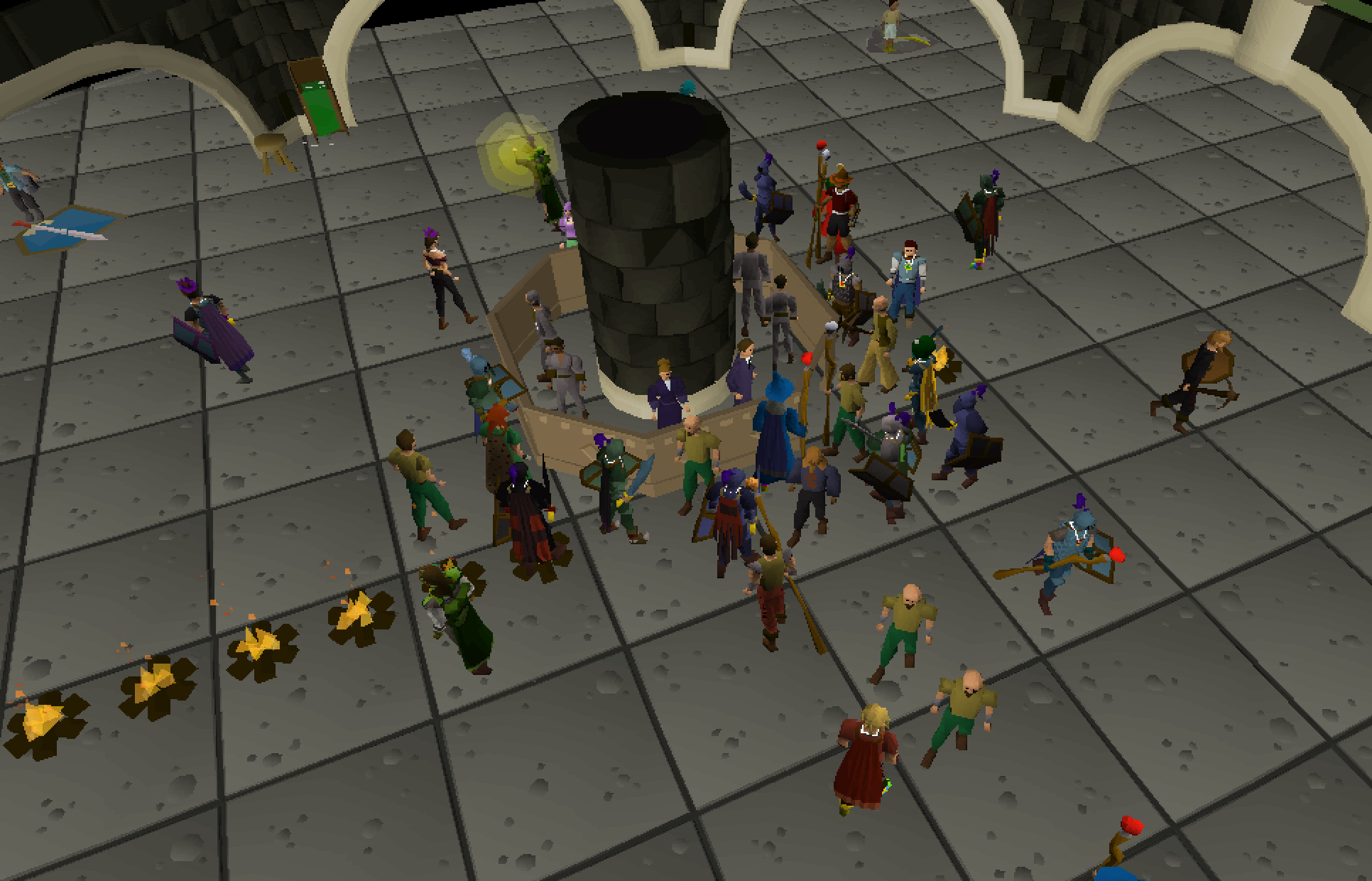 Hey, half of the server is here!
Hey, half of the server is here!
Expand the Grand Exchange?s physical presence ? but reform what you can sell and where you can sell it.
The Grand Exchange is undeniably useful. It has helped to systematize and expand Runescape?s comparative advantage among MMORPGs ? it?s sophisticated player-driven economy ? and arguably makes playing in that economy a lot more fun. But it has also sucked the life out of many of OSRS?s cities. Before the GE, Varrock West Bank and Falador Park were constantly brimming with activity, as players manually bought and sold goods. Varrock survived this blow and remains active, thanks to its hosting of the GE. But Falador never recovered and is now largely abandoned, as is Ardougne. At the very least, both of these cities deserve branches of the GE.
Structural fixes might also help to revive spontaneous player markets. Here are two ideas: First, Jagex could remove rare and extremely expensive items from the GE. Nobody wants to return to manually selling thousands of bowstrings, ores, or ranarr seeds. But the market for rare items ? extremely high-value items, clue scroll rewards, etc. ? could and probably should be removed from the GE and handed back to player markets. Unlike with resource items, you don?t need these items to enjoy the game, and it makes sense that players should have to do a little extra work to acquire them. Players would quickly revive the markets and institutions (such as Zybez) that facilitate this trade, adding a needed element of socialization and activity to the game?s major cities.
Second, Jagex could break up the GE into multiple exchanges. Rather than simply opening branches of the same GE across Falador and Ardougne ? following the World of Warcraft auction house model ? Jagex could also create separate exchanges at separate skilling clusters. For example, Falador might host a mining and smithing exchange, Ardougne might host an herblore and farming exchange, while Varrock might remain a general exchange covering final products and any items not involved in resource-intensive skilling. This might create some minor inconvenience, but it would ultimately go a long way toward decentralizing the extreme and unhealthy cluster that currently exists in the suburbs of Varrock. This would also better reflect real-world markets: exchanges in the real world are not typically as centralized as they are in OSRS, with commodity exchanges often clustering near historic sites of production.
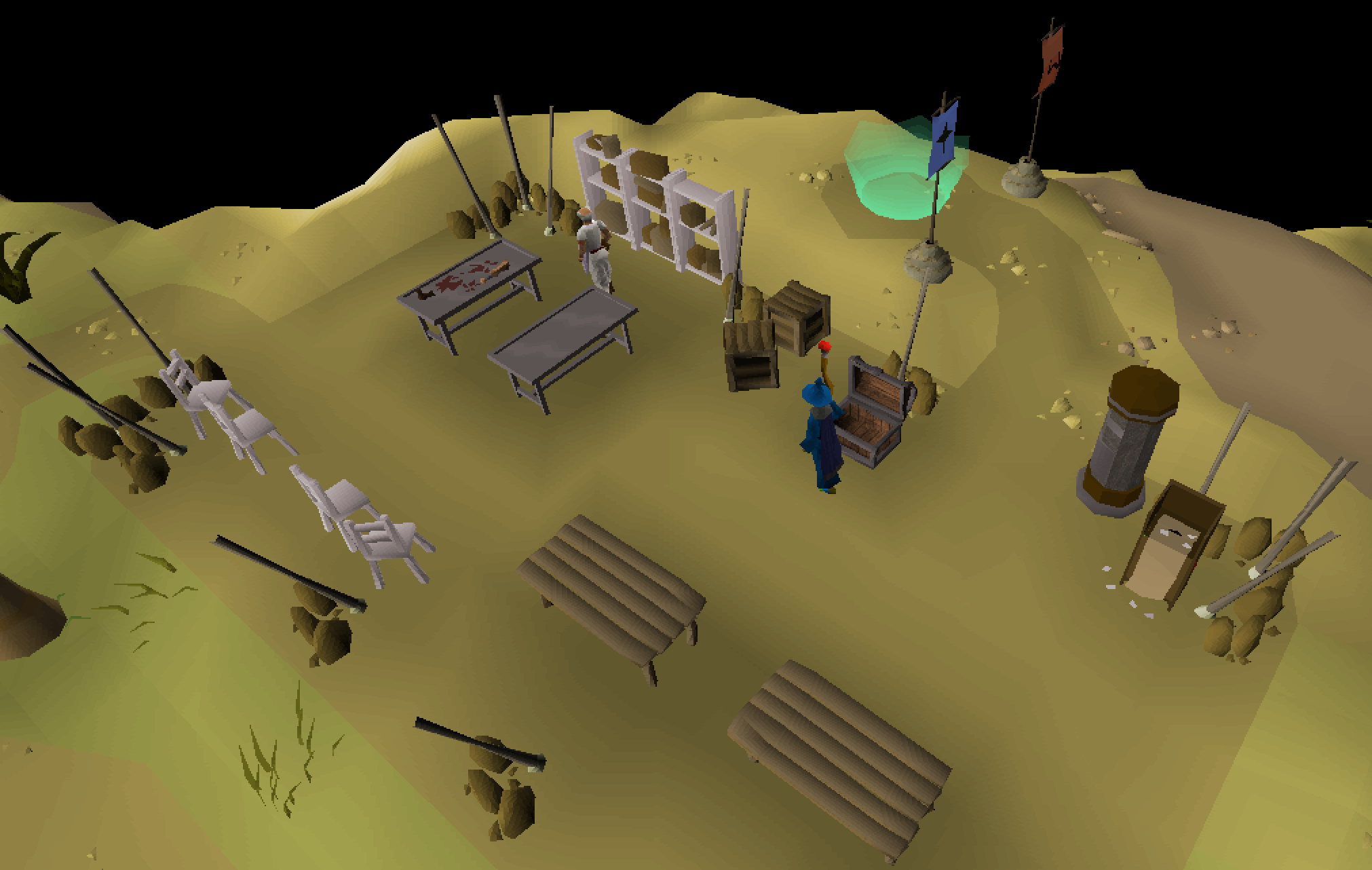 Put this in a city, save two pieces of dead content for the price of one.
Put this in a city, save two pieces of dead content for the price of one.
Move guilds and active minigames to towns and cities.
Going hand-in-hand with ensuring that every city has two or three skilling hubs, all guilds and minigames should be moved to cities, with limited exceptions. Cities with active minigames and guilds almost always stay busy. Take TzHaar, which remains active solely on the basis of three popular minigames. Or Yanille, which enjoys a steady stream of players thanks to the Wizards? Guild and Nightmare Zone.
When it comes to guilds, some of these moves are fairly obvious: Jagex could move the Crafting Guild up to southwest Falador, or the Legends? Guild to East Ardougne. When and if new guilds are added, they should be added to dead towns and cities. There are also some obvious wins here: put the Thieving Guild in Nardah, the Agility Guild in Tree Gnome Stronghold, the Smithing Guild in Keldagrim, the Firemaking Guild in Dorgesh-Kaan, etc. And while minigames may seem uniquely place-specific, many could easily be moved, including Clan Wars, the Mage Training Arena, and Last Man Standing. By making remote guilds and minigames easier to access, this reviving effect might even work both ways.
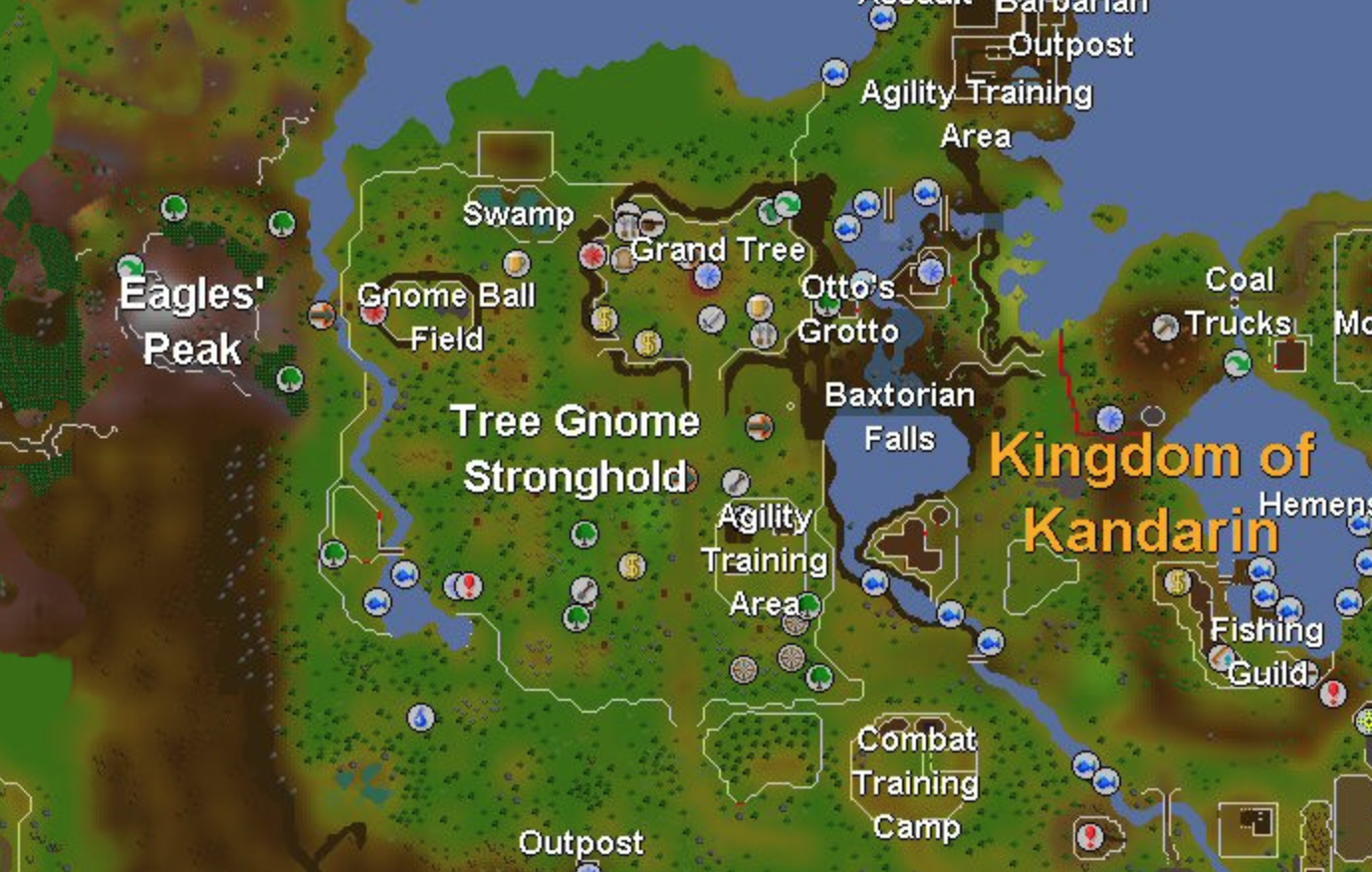 Does Tree Gnome Stronghold need to take up a quarter of Kandarin?
Does Tree Gnome Stronghold need to take up a quarter of Kandarin?
Shrink the size of empty cities.
There?s a good rule of thumb about organizing clubs: it?s better to have a packed small room than a half-full large room. Walk into a small room packed with 10 people and it feels exciting and interesting ? this is the place people want to be! Walk into a massive lecture hall with 20 people spread across the aisles and it feels empty and uncomfortable ? where are all the people? Cities in a game like OSRS work the same way. Take Dorgesh-Kaan: it?s a massive city hosting little more than a steady trickle of questers, bone sellers, and clue scroll hunters. One can?t help but wonder, am I really supposed to be here? The same is true of other sprawling, awkwardly shaped, dead cities like the Tree Gnome Stronghold.
While the impulse to expand cities and make them ever grander might flow from a desire to turn around dead cities, a better path might simply be to shrink down unsuccessful cities to a size that better matches the amount of player traffic that they receive. This way, those players who are there will be around each other, increasing the chances of player interaction and leaving cities feeling less dead, all without needing to add any new content.
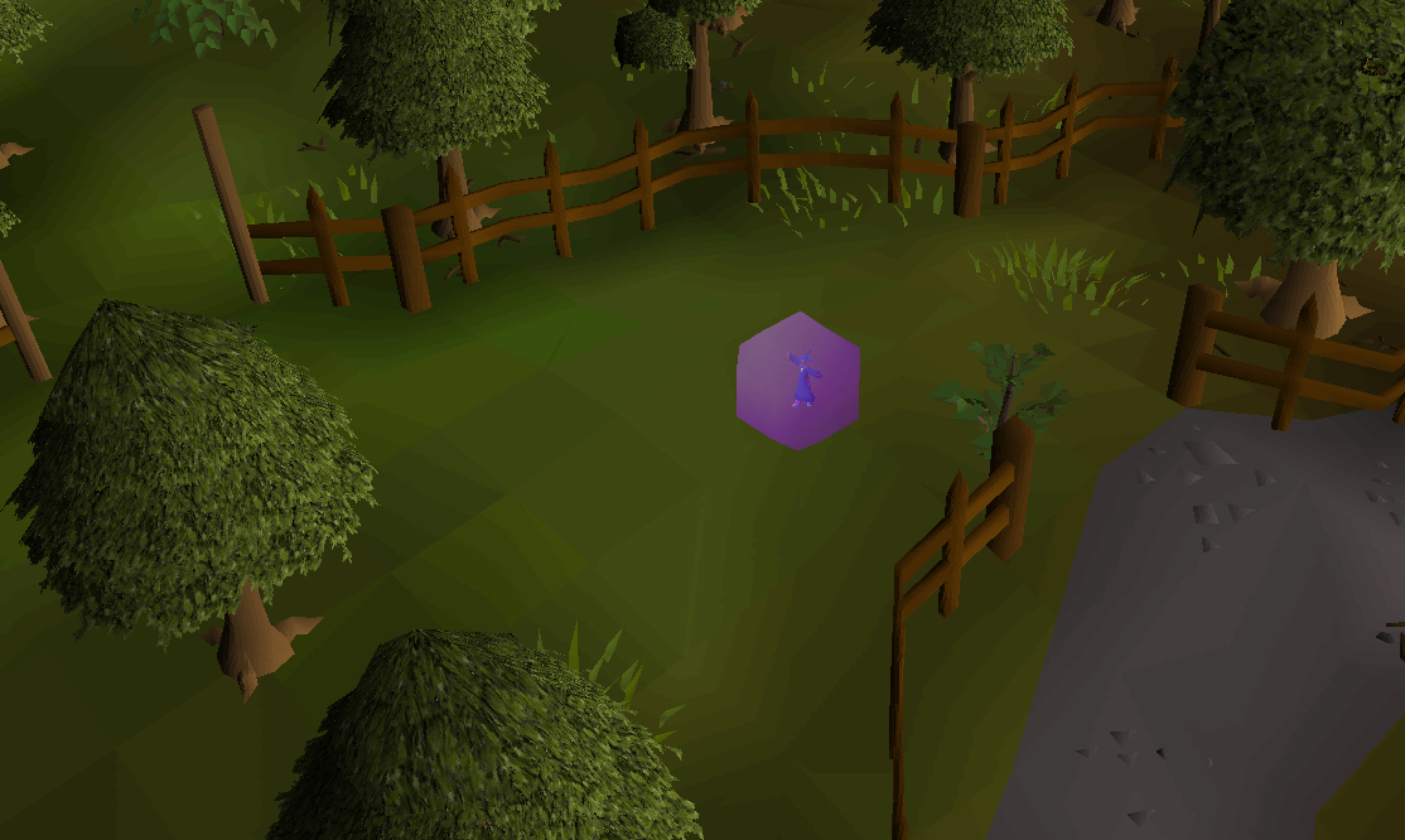 Every noob?s dream.
Every noob?s dream.
Ensure that every city is reasonably accessible.
Every city needs either a teleport spell in one of the spellbooks or some form of transportation. From fairy rings to charter ships to hot air balloons, every town and city needs to be connected to at least one of the major in-game transportation networks. This is especially the case with cities on the outer margins of the map. My sense is that Jagex has tried to solve the accessibility problem in the past with things like teleportation items (Ectophial for Port Phasmatys, teleport crystals to Lleyta), but town-specific items are clunky and easy to forget. It?s best to just connect up every town and city that Jagex wants to revive to one of the major transportation networks, give them a teleportation on a popular piece of enchanted jewelry, or give them a teleportation spell. Moving minigames to towns and cities ? with their associated free teleportation options ? help to solve this problem.
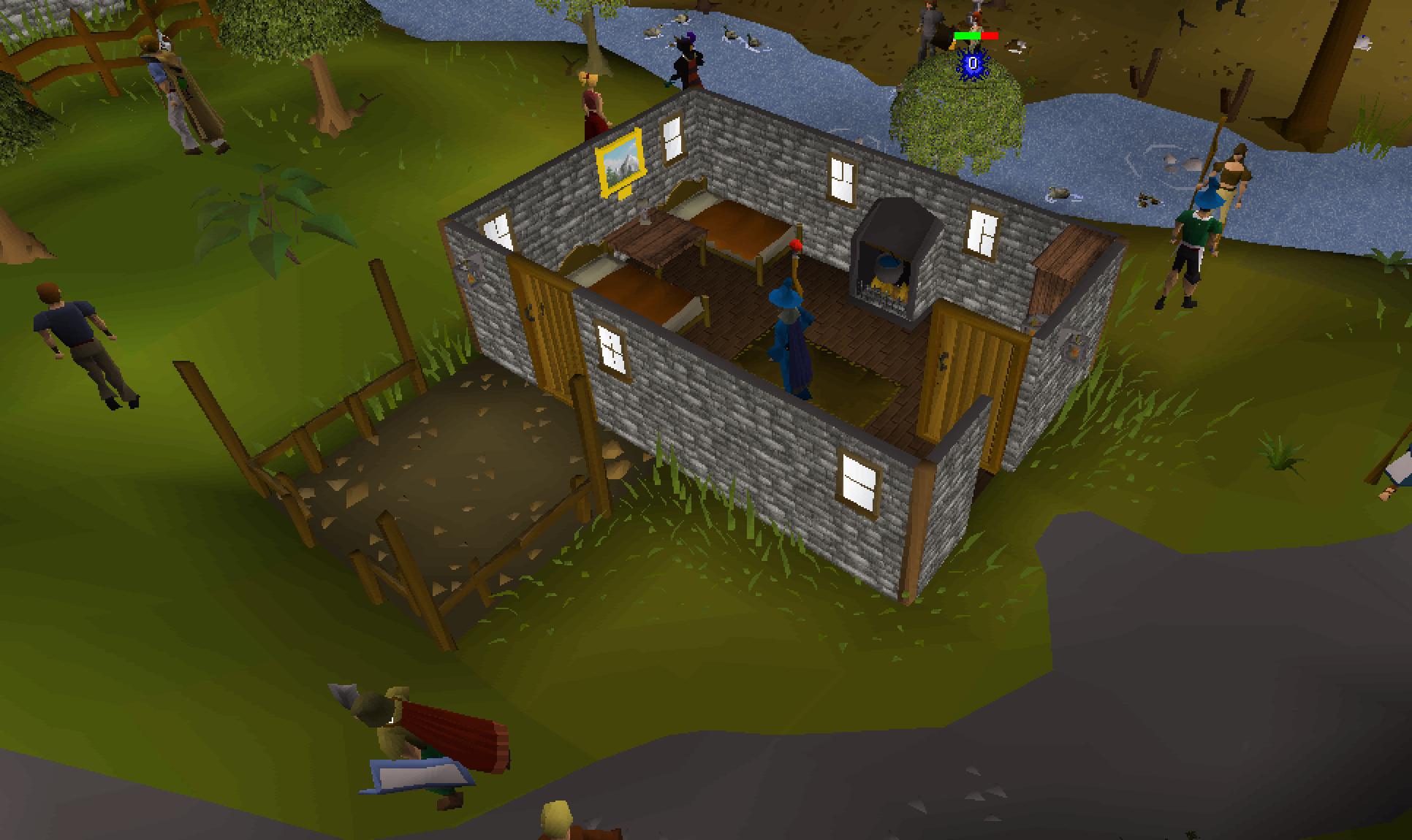 NPC lives matter.
NPC lives matter.
Give players a reason to explore cities.
One major issue with all of OSRS?s town and cities is that there really just isn?t much incentive to explore. Most of the buildings are either empty or exclusively used during one segment of a single quest. Most NPCs work the same way, either existing as an uninteresting Man (level-2) or as unique NPCs who won?t engage with you until a specific point in a quest. This is a missed opportunity. Giving players a reason to explore ? to search the upstairs and basements of buildings, to talk to random NPCs, to search each box and chest ? could create a lot of new ambient activity in cities. Achievement diaries understood this, and are arguably some of the most successful pieces of original OSRS content in the game.
Each building should be assigned a unique NPC ? who you can still kill ? with some original dialogue, perhaps telling you about the goings-on of the city or offering to make a randomly generated sale. They could also send you off on small daily quests, doing things like Animal Crossing-style delivery tasks or solving city-specific riddles. Buildings themselves also deserve some personality. Chests, crates, and shelves could once again host odds-and-ends, with the occasional unique collectible item. Bookshelves could occasionally provide texts covering any number of topics, from in-game lore to stories about the local NPCs. These books could then be collected and stored in player-owned homes. Whatever route Jagex chooses to take, the key takeaway is that there must be some reason to explore OSRS?s towns and cities, beyond standard quests or clue scrolls. As a happy side effect, this kind of content would add a lot of depth to the world.
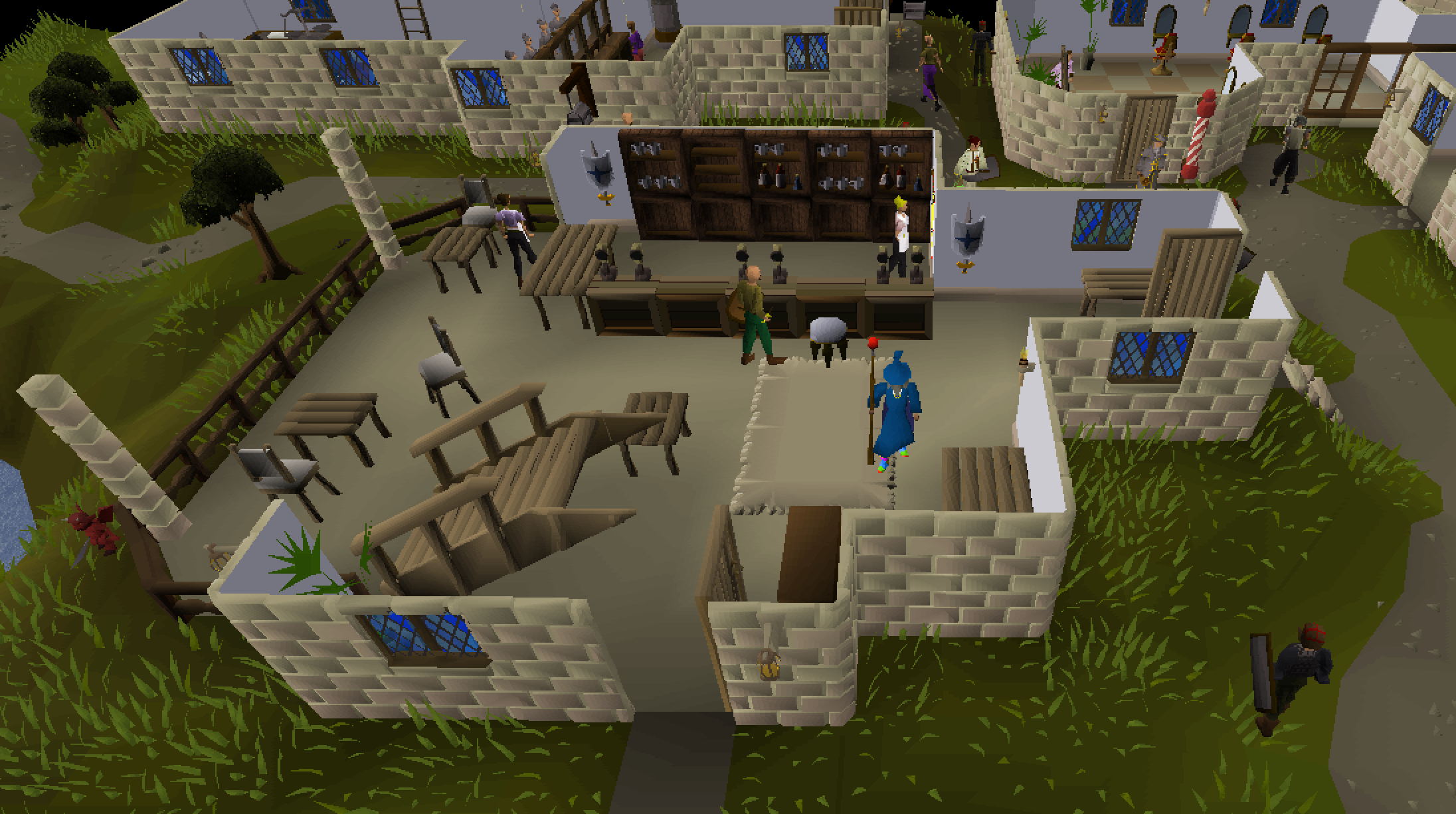 All that space and nothing to do.
All that space and nothing to do.
Make pubs useful.
I?ve added this suggestion last because I simultaneously recognize that getting pubs right is the key to making cities work ? nearly every town and city that matters already has one ? and have no idea how to do this. At present, bars are essentially useless. Yeah, yeah, there?s the occasional quest, or use for a unique brew, or pub crawler. But outside of that, you will never see a player milling around in a pub, let alone multiple players socializing. That?s a shame. So from most to least transformative, here are my ideas on how Jagex could make pubs matter:
- Introduce a ?rest? feature whereby the longer players are logged out of the game in a pub, the longer they will have an xp modifier upon logging back in. This way, players are strongly encouraged to begin and end their play sessions in a pub?as a medieval fantasy character would! Such a feature would also help to encourage healthy playing habits, providing an incentive for players to log out and take a break. Older players will complain that this would make leveling easier, and it might on the margins, but it would without question inject a lot of energy into a currently dead area of towns and cities. (This idea should look familiar to players of World of Warcraft.)
- Have pubs quickly restore run energy. Very shortly after the OSRS cut off (in June 2009, specifically), musicians were added to Runescape. Sitting in their presence would rapidly restore your run energy, reaching 100 percent within 25 seconds. Rather than introducing musicians, OSRS could add this functionality to pubs, encouraging players on the move to occasionally congregate in pubs. Easyscape criticism would be kept to a minimum, since this feature wouldn?t be too useful.
- Divide up the Burthorpe Games Room among the pubs. The Burthorpe Games Room is the example of dead content. Let?s consolidate two dead pieces of content and have pubs host the board games. This could be bundled with a board games overhaul: Players could stake on games, watch the live games of others, and earn rewards for playing. Each game could have a global leaderboard with associated one-of-a-kind skillcapes for the top player in each game. Maybe for old time?s sake, annual competitions with large GP rewards could be held in Burthorpe?s pub ? the Toad and Chicken Inn.
After thinking about the problem of OSRS?s dead and dying towns and cities for far, far longer than I should have, these are my ideas for reviving them. I am absolutely certain that there are many good ideas that I did not touch on in this piece. So what are your ideas? Share them in the comments below. And together, hopefully, we can nudge Jagex into turning a lot of dead content into lively, sociable, fun places to play Runescape.
